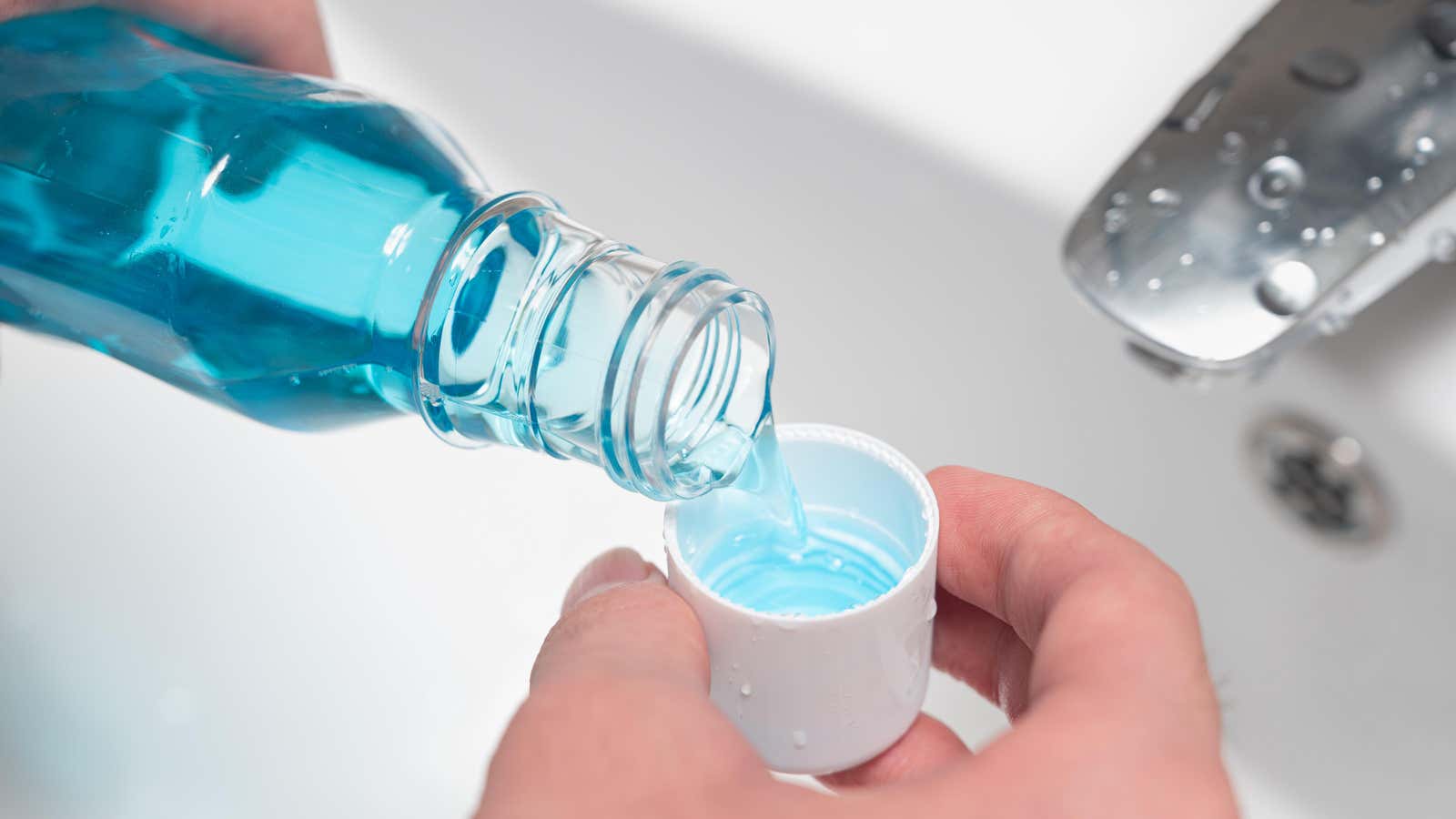Does Mouthwash Really Do Anything?

After brushing and flossing, the rinse completes the triple dental care. But do we really need all three steps? Dentists wouldn’t dare tell you to stop flossing or brushing, but it turns out they’re much more ambiguous about mouthwash.
Where did mouthwash come from?
Mouthwash, more commonly known as “mouth rinse”, may have originated as one of the many uses for Listerine, a surgical disinfectant. In the late 1800s, Joseph Lister realized that carbolic acid could be used to keep surgical instruments and wounds clean , and patients were much less likely to die as a result. A few years later, he allowed his name to be used for another antiseptic made from a combination of essential oils. It was Listerine.
Early advertisements were directed to physicians and described many things that could be disinfected both inside and outside the body. (I have continually come across claims that this material was originally intended for mopping , but cannot confirm that it was ever sold for that specific use.)
Eventually, the Listerine company came up with a new way to market the substance and ran ad after ad to the general public, playing up the terrible problem of bad breath and promising that regular mouthwash with Listerine could cure it or even prevent it from occurring in the first place. Halitosis, despite the scientific-sounding name, simply means bad breath. It is not recognized as a disease.
What do modern dentists think about mouthwashes?
The American Dental Association notes that there are actually two types of mouth rinses : cosmetic and therapeutic.
A lot of what you usually buy at the pharmacy is cosmetics. Here is what the ADA has to say about this:
Cosmetic mouthwashes can temporarily control bad breath and leave a pleasant taste behind, but have no chemical or biological use other than their temporary benefit. For example, if a product does not kill the bacteria that causes bad breath, then its benefit is considered purely cosmetic.
That’s right: creating a feeling of freshness and cleanliness in the mouth is the whole point of a cosmetic rinse. This is not a side effect of some ability to kill bacteria.
So what about medicated mouthwashes? The ADA has a list of products that have earned the Seal of Approval , including mouthwashes that either contain fluoride or have been proven to kill certain bacteria in the mouth. More generally, they list a few active ingredients that actually do something:
Cetylpyridinium chloride can be added to reduce bad breath. 4 Both chlorhexidine and essential oils can be used to combat plaque and gingivitis. 4, 5 Fluoride is a proven tool to help prevent cavities. 7 Peroxide is present in some whitening mouthwashes. one
So is it worth using it? If your dentist recommends a certain type for a specific reason, follow their recommendations (and their instructions on when and how to use it). In the past, I have been prescribed chlorhexidine mouthwash and told to use it for only a few weeks for a specific problem I had. My current dentist is a fan of fluoride mouthwash and advised me to use it at night.
But in general? Mouthwash “is not a necessary step to maintain good oral health,” an ADA spokesperson told us last time we started asking detailed questions about how to use it. So keep using your mouthwash if it’s recommended by your dentist or if you just like the feeling of freshness and cleanliness. Otherwise, feel free to cut it out of your routine.